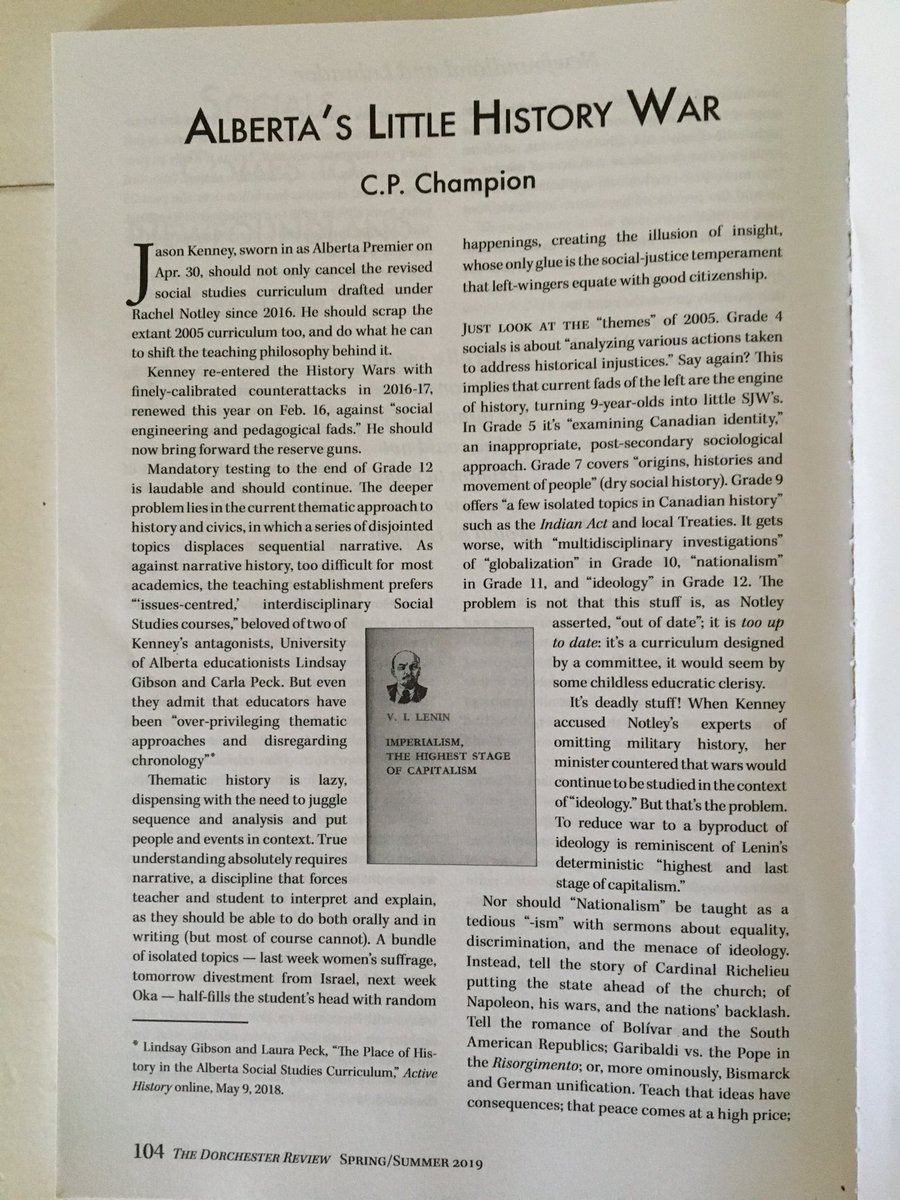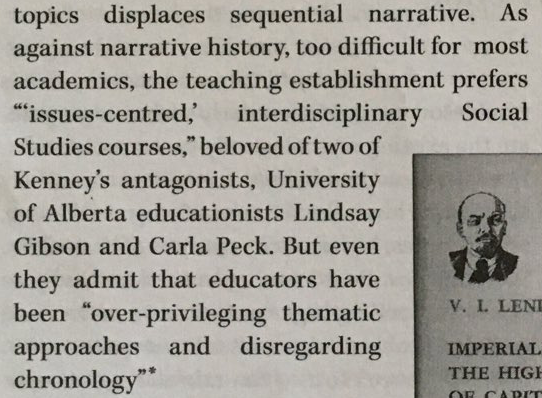
I've noticed the term "activist historian" is used by some #Canadian scholars as a way of delegitimizing the work of historians who place ethics and social justice at the core of their work.
https://twitter.com/DavidOlusoga/status/1403278656168935425
Historians and philosophers of history have debated whether ethical judgments are acceptable in the discipline of history since the end of the Second World War.
The orthodox view was that ethical judgments are neither permissible nor desirable because they are too subjective & irrational, irrelevant to the purpose of history, lie outside historians’ expertise & responsibility, and are inherently presentist.
Of the different reasons historians have eschewed ethical judgments, Cracraft (2004) argues that historians' longstanding aspiration for scientific objectivity stands above all others (p. 37).
Acknowledging that ethical judgments are inescapable undermines history’s orientation towards objectivity and denies the academic character of the historical discipline, which reduces historians’ authority, credibility, and respectability.
Many people have challenged the orthodox view by arguing that ethical judgments are inescapable when researching, writing & teaching history; EJs are the end results of historical inquiry, & that historians can make reasoned ethical judgments about the past that avoid presentism.
Historians’ ethical values influence their choice of topics to study, their perception of sources, their selection of relevant facts, and their hierarchies of explanatory factors (Bedarida, 2000; Boobbyer, 2002).
Megill (2004) argues that explicit and implicit ethical judgments can be identified in all parts of the historical writing process: description, explanation, argument and justification, and interpretation (p. 53-54).
The arguments that attempt to absolve historians of the responsibility for making ethical judgments downplay the ability of a human being, let alone a historian, to possess ethical and moral sense and some subtlety in how that sense is applied.
Vann (2004) maintains that historians should embrace the role of ethical commentators b/c when they make EJs about the past actions of the dead, they are not passing final judgment, they are communicating their ethical opinions to their readers & inviting them into a dialogue.
It's commonly agreed that it is impermissible to uncritically apply contemporary ethical values to the past situation (presentism/anachronism), but the problem of presentism can be addressed.
For Gaddis, the only way to face the problem of presentism when making ethical judgments is to accept the historian’s engagement with the morality of their time, but to distinguish that 

EJs are unavoidable when researching, writing, & teaching history. For Cotkin (2008) 21st cent scholarship has undergone a “moral turn” & “historians are presently treading upon a landscape full of moral topics” (p. 312) focused on questions of justice & injustice/right & wrong.
TLDR: Ethics are central to the discipline of history & history education.
Denying the ethical dimensions of history distorts understanding of what history is and why it's important to learn.
Denying the ethical dimensions of history distorts understanding of what history is and why it's important to learn.
Also there's a big difference between thoughtless moralizing and reasoned ethical/moral judgments. People who criticize EJs in history/history education often confuse the two.
Current debates about commemorations around the world highlight the importance of ethical judgments in history.
How do we assess the legacy of past historical actors?
Who is responsible for past injustices?
How should we respond in the present to past injustices?
How do we assess the legacy of past historical actors?
Who is responsible for past injustices?
How should we respond in the present to past injustices?
• • •
Missing some Tweet in this thread? You can try to
force a refresh












